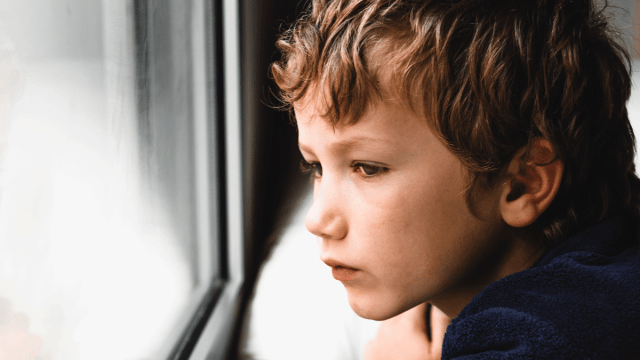Shame. On. You. We’ve all heard it, and probably—if we’re being honest—our discipline tactics have included it. It’s an easy fix; a quick correction with immediate results. But research suggests that disciplining in a manner by which our children feel shame (as Brene Brown puts it “I am bad”) as opposed to guilt (“I did something bad”) damages your relationship with them, their self-esteem and ultimately can result in the exact opposite behavior from that which you’re trying to encourage.
So what’s a parent to do? When a child misbehaves—especially over, and over, and over again in the same manner—it’s our job to correct that behavior. Discipline, when done well, is a gift that we give to our kids because really—who wants to be around a kid who’s never been disciplined? It ensures they’re able to function in a positive way in society. It simply must be done. But according to a medically-reviewed article in Verywell Family by Jennifer Wolf, shaming is radically different from positive—and productive—discipline.
It’s “telling embarrassing stories in an attempt to manipulate your child’s behavior, sharing what should be a private conversation about behavior and consequences and making it public by sharing it with friends, family, or the world at large (via social media), or intentionally making a child feel bad about himself or herself, as a person, instead of focusing on the actual behavior you’re trying to change.” And while they may work in the beginning, don’t expect these tactics to provide a long-range solution.
“Not only do you lose considerable relational equity, but shaming kids in public or online also tears down trust and self-esteem. At the same time, it zaps your child’s motivation to engage in the very behaviors you’re trying to encourage.” Plus, shame is a feeling that sticks around, and it becomes a child’s default emotion when something goes sideways, as things will do. It teaches your kids to personalize failure, instead of growing from it.
As with all things, social media takes public shaming next-level. “For example, shaming your child publicly on Facebook, where there’s a perception that a very large number of people are seeing it, may be more harmful to your relationship and your child’s sense of self than the old-fashioned “You won’t believe what he did now!” kind of shaming that used to take place around the dinner table in front of Aunt Sally.” It’s what we teach them: everything on social media is discoverable. It never goes away. Shame, dished out on social media, is here to stay.
So don’t panic. If you’re guilty of this, an apology and assurance that it won’t happen again will go a long way to correcting any past indignities. “A genuine apology will have a restorative effect on your relationship so that you can begin to leverage your connection as your biggest ‘weapon’ for influencing your child’s behavior—not shaming.” On or off the internet, if you’ve used shaming words and phrases—”You’re such a bad girl; You’re just like your mother (or father); I don’t know why I even bother with you; I should ship you off to live with dad (or mom); I’m so tired of dealing with you,”—take a minute. Parenting is hard. You’re doing your best, but a awareness of how these types of messages can hurt our kids (and our relationship with them) is probably overdue.
If any of this has hit home, know there’s hope. Your best defense in shaping their behaviors is a good relationship with them. “Ideally, you want to create a bond that reinforces your kids’ positive sense of who they are, while also giving them room to learn from their mistakes. So when your kids choose to disobey you, have a conversation about their choices and what they can do differently next time.”
Asking for more information before dishing out discipline, helping your child identify and process the way they felt when they were making a bad choice, letting them verbalize ways they could have changed their behavior—these are all ways to rely on your relationship to bring about behavioral change, instead of using shame. And possibly most importantly, don’t forget the power of asking “How can I help,” because “even if there’s nothing practical you can do, it will help your child to hear you make a genuine offer to help.”
RELATED STORIES
Instagram Finally Rolls Out Parental Supervision Tools
Instagram Can Detect Bullying in Photos & This Is Huge for Teens
